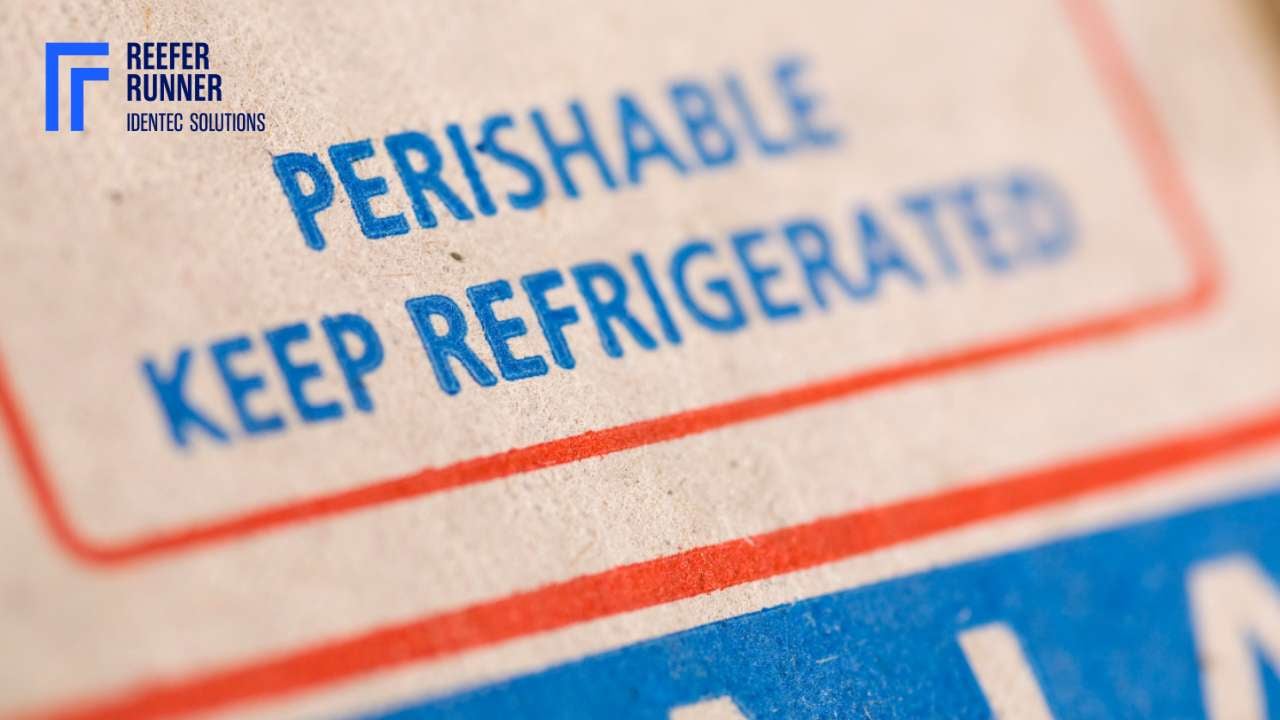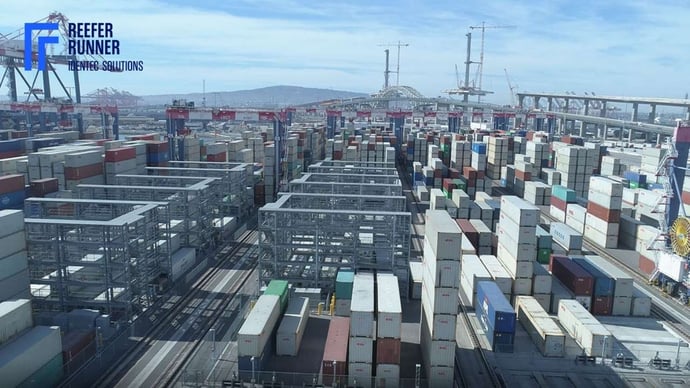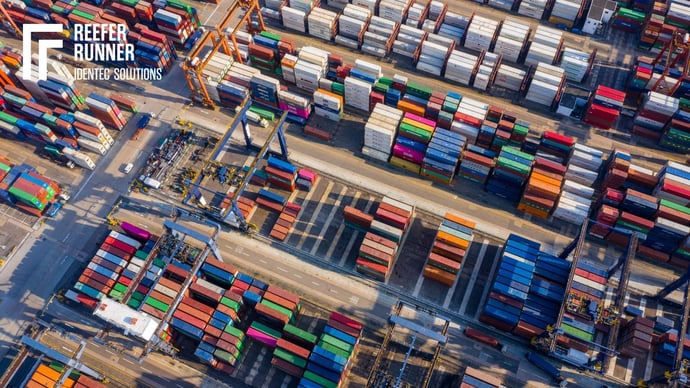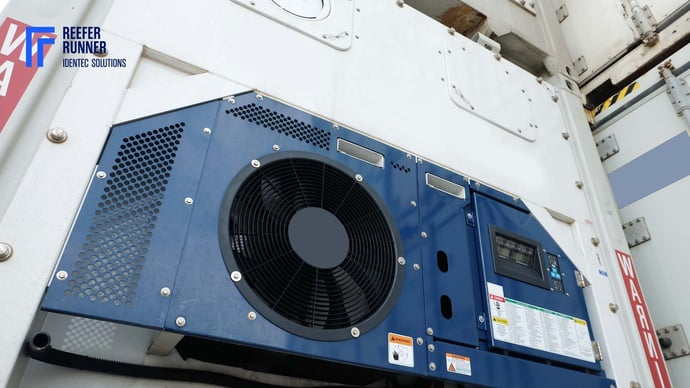Automated refrigerated Reefer monitoring results in fewer claims
| Written by Jordi Asensio Carbo
Is your cold supply chain running as smoothly and efficiently as it could be? The answer may lie in automated refrigerated reefer monitoring. With automated monitoring, you can monitor your reefers and ensure they’re always running at their peak performance. This leads to increased efficiency, improved temperature regulation, lower costs, and fewer claims. If you're ready to take your cold supply chain to the next level, read on to learn more about the benefits of automated reefer monitoring. Reduce claims, avoid human error.

No video selected
Select a video type in the sidebar.
In most ports, terminal automation primarily focuses on container handling while the monitoring of individual containers is done manually. Energy monitoring is key in keeping the temperature of perishables at the right levels, but it is a very labor-intensive job as the temperature setting and monitoring are often done manually. Lack of available labor as well as human errors often result in temperatures not staying at the required levels and fresh produce going to waste.
Automated Reefer Handling Overview
The use of automated refrigerated reefer monitoring is becoming increasingly common as the food supply chain continues to expand. Automated reefer monitoring provides a reliable, efficient, and cost-effective way to keep track of refrigerated reefers' temperature and health while on the move.
A reefer is a refrigerated container (also referred to as a “reefer”) designed to transport perishable goods to their destination safely. Reefer units are equipped with sensors that monitor and transmit data such as temperature, air quality, humidity, and other relevant parameters. It is important that these units be kept within specific temperature requirements during transit, as this can significantly impact the quality and shelf life of the transported goods.
Automated refrigerated reefer monitoring allows for continuous monitoring of reefer units and their contents, providing greater visibility into the conditions inside the vehicle and providing alerts if the temperature or other parameters exceed predetermined thresholds. With this information, companies can take proactive steps to ensure that the product being transported is not damaged or spoiled. Automated reefer monitoring systems typically include hardware and software components, such as temperature sensors, GPS systems, and software applications, to enable data collection, visualization, and analysis.
Using automated reefer monitoring, companies can save time and money by avoiding losses due to damage and spoilage. These systems can also provide valuable insight into the reefer unit's performance and how it is utilized and maintained by the driver. This can help companies improve their overall logistics processes, resulting in better service and better customer satisfaction.
The Benefits of Refrigerated Reefer Monitoring
Monitoring refrigerated containers is essential to managing a successful cold storage operation. Automated reefer monitoring systems provide organizations with greater insight and control than ever before. Automated reefer monitoring offers organizations a number of significant benefits, including reducing downtime, improving accuracy, and promoting better communication.
Increased Efficiency
The introduction of automated refrigerated reefer monitoring is the next step in making refrigeration transportation more efficient. By automating tracking procedures, reefer fleets are able to save time and money by avoiding manual labor associated with monitoring temperature and other conditions. Automated monitoring systems gather data from temperature sensors and other elements in the reefer and alert the user when any desired parameters are exceeded. This allows for more efficient monitoring and management of the reefer’s load. Automated refrigerated reefer monitoring also allows for the collection of data on reefer performance, fuel consumption, and other operational items. These data points provide useful information so that the reefer fleets can identify areas for improvement and maximize efficiency.
Reducing downtime
Automated refrigerated reefer monitoring systems can significantly reduce the time required to identify and address issues with a reefer. Automated monitoring systems provide real-time updates on the condition of reefers, allowing operators to detect and troubleshoot problems quickly. This reduces the time spent on manual inspections, which in turn reduces lost time and ensures reefers are up and running as quickly as possible.
Improving Accuracy
Manual reefer monitoring systems are prone to human error, which can lead to inaccurate readings. On the other hand, automated reefer monitoring systems provide consistent and accurate readings. This eliminates the potential for human error and allows organizations to make more informed decisions. Automated monitoring systems can also provide a more comprehensive view of how reefers are performing over time, further improving accuracy.
Better Communication
An automated refrigerated reefer monitoring system can also improve communication between operators, managers, and other stakeholders. Automated systems offer a centralized database where information can be easily shared. This encourages collaboration and allows operators to identify and address any issues quickly. Automated reefer monitoring also makes it easier for managers to access and analyze data, allowing them to make more informed decisions regarding maintenance and operations.
Lower costs
Automated refrigerated reefer monitoring can help lower costs associated with transporting goods that require refrigeration. Storing and shipping goods properly can prevent them from spoiling and becoming damaged, leading to a lack of profitability. Automated monitoring allows the temperature of goods to be monitored constantly and to be adjusted as needed. It alerts when issues arise and allows for quick action, preventing goods from becoming ruined or contaminated. Automated refrigerated reefer monitoring also allows for improved efficiency. By tracking temperatures, the amount of energy used for refrigeration can be monitored and adjusted accordingly. This allows for cost savings as well as improved efficiency.
Less claims
When it comes to product shipping, one of the biggest issues currently is damage caused by temperature fluctuations. Loss of product due to improper temperature control can lead to decreased profits and costly insurance claims. This is why advances in refrigerated reefer monitoring have been so important. Automated refrigerated reefer monitoring has been found to reduce the occurrence of product damage and its associated costs from temperature-related fluctuations.
Automated refrigerated reefer monitoring is a system that uses sensors and algorithms to detect temperature changes and other environmental factors in reefers. This system then sends alerts to the shipper if the temperature inside the reefer ever reaches a critical level. This alerts the shipper to any potential issues, allowing them to take corrective action to prevent product damage.
The automated refrigerated reefer monitoring system can also be used to monitor the performance of the refrigeration unit itself. By continuously monitoring the temperature, it can detect any mechanical problems with the unit, thus allowing the shipper to take steps to fix them before they cause any serious damage. This can result in fewer repairs and maintenance costs, which can save shippers significantly in the long run.
The automated refrigerated reefer monitoring system also helps to reduce claims costs. By identifying any temperature problems before they cause serious damage, it can help to reduce how much needs to be claimed, or even prevent claims altogether. This can save the shipper a considerable amount of money in the long run.
TEMPERATURE-CONTROLLED CARGO INCIDENTS
Since container terminal operators are being held responsible for keeping the temperatures at the right levels while being on the terminal, they often see themselves faced with claims.
According to international transport insurer TT Club, temperature-controlled cargo incidents have been one of the leading causes of insurance claims in the transportation industry over the past three years with human error being the cause in a majority of cases. In 29 percent of the claims in the temperature-controlled supply chain, the problem arises because the responsible parties have not properly passed on information to each other. In 24 percent of the incidents, personnel incorrectly adjusted the temperature of the reefer equipment and in 10 percent of the damage in the cold chain, they simply failed to plug in the equipment. In a quarter of claims, the equipment itself is the problem as it has a defect or breaks down.
REfrigerated reefer MONITORING DEVICE
To prevent terminals from the need to manually inspect refrigerated containers on their premises, we at IDENTEC SOLUTIONS have developed a remote reefer monitoring device, Reefer Runner. Reefer Runner can be mounted permanently on the reefer rack or attached to the reefer container directly via magnet and plugged into a container data port. Reefer Runner provides real-time visibility without any human interference and this has proven to be a very effective way to eliminate human errors and lower insurance claims - making reefer logistics much simpler.
Reefer Runner is a wireless remote monitoring and control system that interfaces directly with the Navis N4 container terminal operating system (TOS), which is the market leader for TOS systems globally. However, the solution offers plug and play interfaces to 15 other TOS providers as well.
With the increasing demand for Reefers, especially for the transportation of perishable goods and pharmacy products, we are experiencing growing interest in our reefer management solution.
With Reefer Runner being used in over 50 terminals worldwide, our team is serving key accounts around the globe, including APM Terminals, DP World, Eurogate, ICTSI, TIL and many more.
FAQs
- What is reefer claim handling?
Reefer claim handling is the process of dealing with claims related to the transportation of perishable goods via refrigerated containers.
- What kinds of claims can be handled?
Claims that can be handled include damage to the cargo, temperature control issues, and other related problems.
- Who is responsible for handling reefer claims?
The carrier that transported the cargo is typically responsible for handling reefer claims.
Takeaway
Automated reefer monitoring is rapidly becoming an essential technology in the marine and port industry. With automated reefer monitoring and management, operators can benefit from improved efficiency, temperature regulation, and cost savings. It can significantly reduce the amount of time needed to manage refrigerated containers and prolong the life of the goods inside. This technology also reduces the potential for claims when the goods are not kept within the correct temperature range as it provides full storage documentation.
Dive deeper into one of our core topics: Refrigerated containers
This article was updated on March 17, 2023
Related Articles
Related Product





